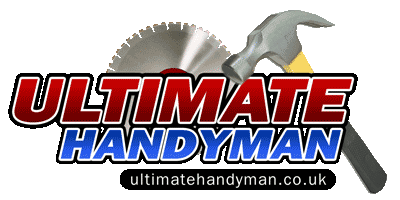Tom d'Angler wrote: The pads I use seem to do a great job of keying the surfaces ready for painting. You are right - they aren't great for rough surfaces. For those I tend to use my electric sander. That makes life a lot easier!
.
This is what i'm saying to you.
Go and buy the rolls of sandpaper Puma listed (Personally I go for 80/120/240 grits but that's up to preference) the prices for those rolls on that site are very good.
When using the paper cut a section of about 20cm+ then fold the paper in 3, it's hard to put in writing but you should end up two rough surfaces with two flaps that fold over one another, holding it all together. Now the rough surface means you can hold the paper on the end of your finger tips firmly, without it flying about or ripping.
You say you don't buy this paper but use a sander for anything tough, again this makes me think you are buying sanding pads for your sander, which can be expensive. The beauty of this type of sand paper is that it can be cut to size quickly to fit a palm sander. (I would recommend the makita palm sander about £60-70). Again saving you money, and the paper is tougher than most of the ready-made sanding pads sold.
I understand what you are saying about time served decorators who may be stuck in their ways but it is often the opposite. Once you have been in the construction industry long enough your brain tends to work in a different way, you use one product or a technique, something new comes along and you can quickly evaluate it to see if it sits right with the various problems that you know are chucked up on jobs, if it makes sense you try it.
Take that electric brush/roller spinner I know you use. Before those sort of products came out, decorators would take a brush and place it between the palms of their hands and rub back a forth to spin the brush and dry it. Rollers where cleaned out, put back in a cage and rolled down a clean wall to spin dry. Now before that electric spinner came out there is a mechanical version which doesn't require the use of a drill or electricity but works by pump action, these are of course slightly quicker to use as there is no set up. They are cheaper and made of metal not plastic so a bit more robust. You have the electric one whch is fine and does the same job but if it ever broke I would say get the mechanical one instead.
In construction there are problems and solutions, depending on how long you have been in the industry will determine the speed at which your brain will come up with the solution. It's called experience. All i'm trying to say is that had you worked with a decorator in the begining you would have had a massive head start on your education in the industry, I'll go as a fair as saying a decent decorator could have shown and taught you more in a month than you learnt in your first 2 years going it alone.
I'm not having a dig, i'm just trying to help you from working in ineffective ways and stop you from having to learn things the hard way.


